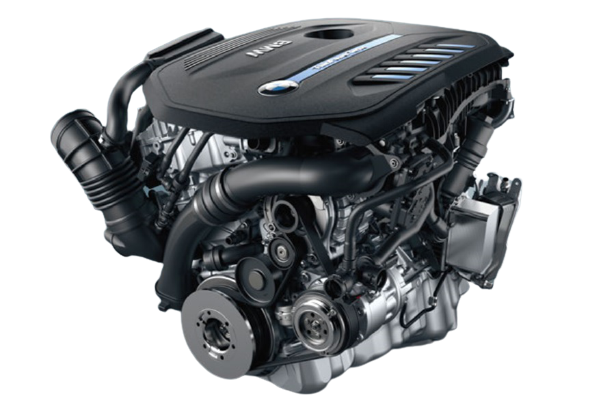Why the BMW Engine Is Taken Into Consideration Among the very best in High-end Automobiles
Why the BMW Engine Is Taken Into Consideration Among the very best in High-end Automobiles
Blog Article
Unveiling the Intricacies of Next-Generation Power Units: a Deep Study Advanced Engine Layouts and Advancements
As we stand on the precipice of a new period in transportation, the intricacies of next-generation engine styles beckon us to check out the cutting-edge modern technologies and developments that assure to redefine the driving experience. Delving much deeper right into the realms of exhaust control, intelligent engine monitoring systems, and the horizon of power system growth, we discover ourselves on the cusp of a transformation that guarantees to reshape the landscape of movement as we understand it.
Advancement of Engine Materials

The change in the direction of progressed engine materials has also allowed designers to create engines with greater power results while maintaining fuel efficiency requirements. The use of lightweight materials decreases the general weight of the engine, leading to enhanced gas economic situation and reduced exhausts. In addition, advancements in products technology have actually permitted much better thermal management within engines, causing raised integrity and long life.
Turbocharging and Supercharging Technologies
Just How do Turbocharging and Supercharging Technologies change engine performance and efficiency in modern-day automobiles? Turbocharging and supercharging are modern technologies that substantially improve engine efficiency by boosting the amount of air consumption into the burning chamber. Turbocharging accomplishes this by utilizing a generator driven by exhaust gases to pressurize the intake air, while turbo charging uses a belt- or chain-driven compressor to attain the exact same effect.
These innovations enable smaller sized, more fuel-efficient engines to generate power equivalent to bigger ones, referred to as downsizing. Forcibly more air right into the cylinders, supercharging and turbocharging enhance burning effectiveness, resulting in raised horsepower and torque result without a considerable rise in engine size. This leads to far better acceleration, lugging capability, and total driving performance.
In addition, supercharging and turbocharging add to boosted fuel performance by enabling the usage of smaller sized engines that consume less gas under regular driving conditions - bmw engine. This combination of boosted efficiency and efficiency has made turbocharging and turbo charging indispensable components of numerous modern-day engine layouts
Emission Control and Environmental Effect
With raising international concerns relating to air top quality and environmental sustainability, the implementation of discharge control modern technologies in vehicles plays a critical function in lowering hazardous contaminants launched right into the atmosphere. Modern cars are equipped with innovative emission control systems that assist lessen the ecological effect of vehicle procedures. Catalytic converters, as an example, are made to transform poisonous gases such as carbon monoxide gas, nitrogen oxides, and hydrocarbons right into much less dangerous materials like co2 and water vapor.
Moreover, innovations in engine modern technology, such as the assimilation of exhaust gas recirculation systems and careful catalytic reduction, have significantly added to decreasing emissions. These technologies operate in tandem to maximize burning effectiveness and reduce the release of harmful toxins right into the air. Furthermore, the development of crossbreed and electrical cars represents a crucial action in the direction of decreasing the overall ecological impact of the transportation sector.
Intelligent Engine Monitoring Solution

Moreover, these systems enable lorries to meet rigorous discharges standards without jeopardizing efficiency, offering an extra eco-friendly driving experience. The combination of expert system and equipment knowing capacities in engine administration systems proceeds to push the borders of what is possible, causing more enhancements in performance, reliability, and general vehicle performance. bmw engine. As auto technology developments, smart engine management systems will certainly play an essential function in forming the future of transportation towards a much more efficient and sustainable instructions
Future Trends in Power Device Development
As intelligent engine management systems pave the way for enhanced control and optimization in modern vehicles, future trends in power unit growth are positioned to redefine the landscape of auto propulsion modern technologies. These different power resources use enhanced efficiency and performance while aligning with rigorous ecological guidelines.
One resource more significant trend is the integration of innovative products and producing techniques. Lightweight materials such as carbon content fiber and aluminum are being utilized to reduce total automobile weight, enhancing gas effectiveness and performance. Furthermore, developments in 3D printing and additive production are allowing the production of complicated engine parts with higher precision and sturdiness.
In addition, artificial knowledge and artificial intelligence are playing a crucial role in maximizing power system performance. These modern technologies enable real-time surveillance and adaptive control, leading to a lot more reliable and trustworthy power shipment. On the whole, future patterns in power device advancement are tailored towards performance, sustainability, and performance, driving the automobile sector towards a brand-new era of propulsion innovations.

Conclusion
In final thought, the innovations in engine materials, turbocharging, emission control, and intelligent monitoring systems have actually paved the means for next-generation power systems. The detailed layouts and developments in contemporary engines display the ongoing development of vehicle modern technology.
Checking out the progressive advancements in engine products has actually been pivotal in improving the performance and effectiveness of modern-day engines. Over the years, the advancement go to these guys of engine products has actually played an important function in pressing the limits of what engines can accomplish.The change in the direction of progressed engine materials has likewise allowed engineers to create engines with greater power outcomes while preserving fuel efficiency criteria.The implementation of intelligent engine management systems in modern vehicles has actually changed the means engines are regulated and maximized for efficiency and effectiveness. By gathering data in real-time and evaluating it with sophisticated formulas, smart engine administration systems can adapt to driving styles, ecological variables, and engine wellness to take full advantage of power output while minimizing gas intake and discharges.
Report this page